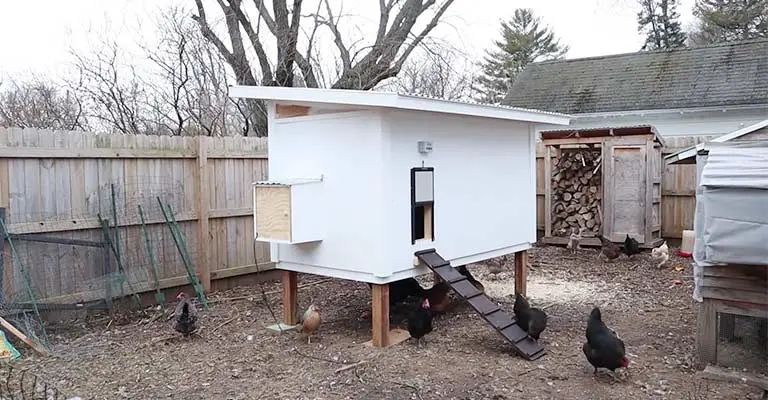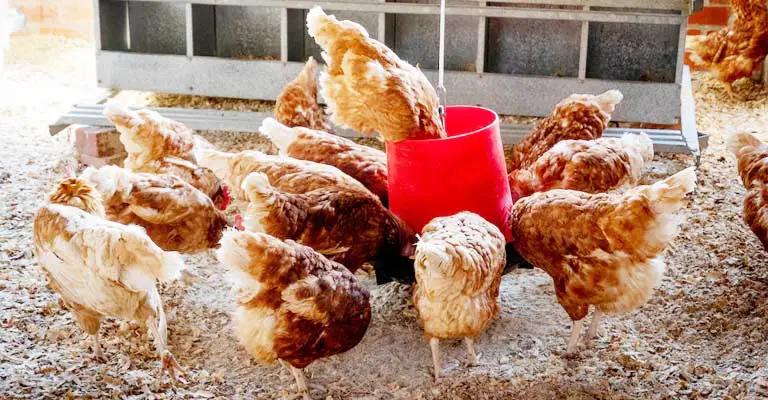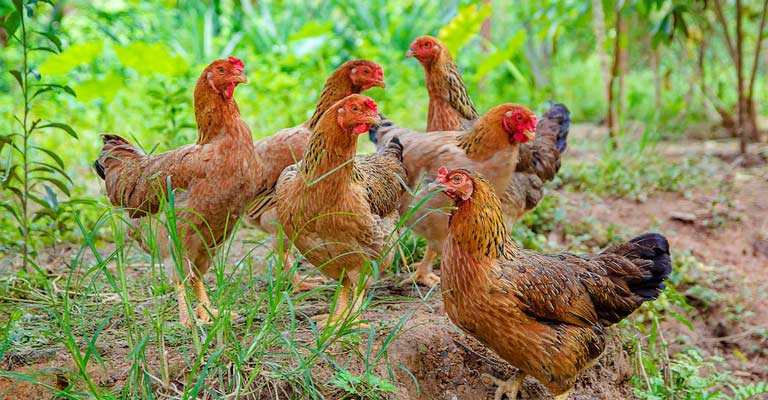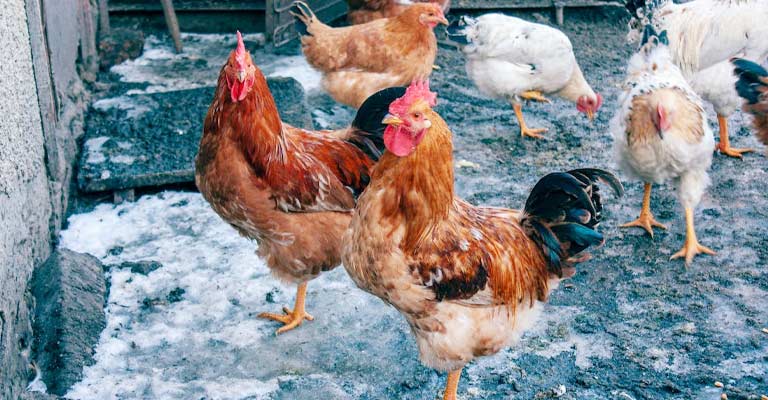Considering the allure of fresh eggs, pest control, and the charming clucks echoing through your backyard? Before you embark on the adventure of raising backyard chickens, there are crucial aspects to consider.
While the idea of a small flock may seem idyllic, the reality involves a spectrum of responsibilities, from coop construction to daily care.
In this guide, we’ll delve into the topic ‘What you should know before getting backyard chickens’.
From city dwellers to suburban homesteaders, the prospect of having your source of eggs and the joy of chicken companionship is undeniably appealing.
However, understanding the intricacies of chicken husbandry, local regulations, and the commitment required is paramount.
So, before you dive into the world of backyard chickens, let’s explore what it takes to ensure a harmonious and successful experience with your new clucking cohabitants. Let’s dive in for more details!

What You Should Know Before Getting Backyard Chickens?
Raising backyard chickens is a rewarding venture, offering fresh eggs and the delightful company of these feathered friends. However, before you embark on this homesteading journey, there are crucial aspects to consider.
This comprehensive guide covers everything you need to know to ensure a successful and fulfilling experience with your backyard flock.
Local Regulations and Zoning Laws
Before bringing home your feathered companions, familiarize yourself with local regulations and zoning laws. Many areas have specific rules regarding the number of chickens allowed, coop placement, and noise restrictions.
Contact your local government or zoning office to ensure compliance and avoid potential legal issues.
Commitment and Time Investment
Chickens require daily care and attention. From feeding and watering to cleaning the coop and collecting eggs, be prepared to invest time in their well-being. Chickens can live for several years, so consider the long-term commitment before deciding to bring them into your backyard.
Coop Construction and Design

A well-designed coop is crucial for the health and safety of your chickens. Ensure it provides adequate ventilation, insulation, and protection from predators.
The coop should also have nesting boxes for egg-laying and perches for roosting. Invest time in planning and constructing a sturdy and secure coop before getting your chickens.
Choosing the Right Breed
Different chicken breeds have unique characteristics, including egg production, temperament, and cold or heat tolerance.
Research breeds that align with your preferences and climate. Consider factors such as the size of the eggs, the chicken’s size, and their suitability for free-ranging or confinement.
Egg Production Expectations
While fresh eggs are a significant benefit of keeping chickens, it’s essential to set realistic expectations. Factors such as breed, age, and health influence egg production.
Some breeds are prolific layers, while others may be more sporadic. Understand the average egg production of your chosen breed and be patient as your chickens settle into their laying routine.
Health and Disease Management
Maintaining the health of your chickens is paramount. Regular health checks, vaccinations, and a clean living environment help prevent diseases.
Familiarize yourself with common poultry illnesses, symptoms, and appropriate treatments. Establish a relationship with a local veterinarian experienced in poultry care for emergencies.
Feeding and Nutrition

Providing a balanced and nutritious diet is essential for your chickens’ well-being and optimal egg production. Choose a high-quality feed appropriate for their life stage (chicks, pullets, layers) and supplement it with fresh fruits, vegetables, and grit. Ensure they have access to clean water at all times.
Social Behavior and Flock Dynamics
Chickens are social animals that thrive in the company of their flock. Introducing new chickens or integrating different age groups should be done gradually to prevent aggression. Observe their social dynamics and ensure they have adequate space to avoid overcrowding issues.
Egg Handling and Storage
Proper egg handling is crucial for food safety. Collect eggs regularly to prevent them from becoming soiled or cracked. Store eggs in a cool and dry place, preferably in the refrigerator, to maintain freshness and reduce the risk of bacterial contamination.
Predators and Security Measures
Protecting your chickens from predators is a constant concern. Common predators include foxes, raccoons, and birds of prey. Implement security measures such as sturdy fencing, predator-proof locks on coop doors, and even motion-activated lights to deter nocturnal threats.
Noise Considerations

Chickens can be noisy, especially during egg-laying or if they sense danger. Consider your neighbors and the local noise regulations when planning your coop location. Communicate with neighbors about your plans and address any concerns they may have.
Sustainability and Waste Management
Chickens contribute to sustainable living by providing fresh eggs and assisting in waste reduction through composting. Develop a waste management plan for chicken droppings and bedding material.
Composting is an eco-friendly way to repurpose chicken waste for garden enrichment. By addressing these essential aspects before bringing chickens into your home, you’ll pave the way for a harmonious and rewarding experience.
Whether you’re a novice or an experienced poultry keeper, a well-informed approach ensures the well-being of your feathered friends and the enjoyment of fresh eggs from your backyard.
How Messy Are Backyard Chickens?

Raising backyard chickens is a delightful endeavor that brings fresh eggs, charming personalities, and a touch of rural living to your doorstep.
However, it’s essential to acknowledge that along with the benefits come certain messy aspects that every chicken keeper should be prepared for.
Feathers Everywhere
Chickens molt, and when they do, feathers seem to be omnipresent. While molting is a natural process for chickens to shed old feathers and grow new ones, it can leave your coop and yard covered in a blanket of feathers. Regular coop cleaning and grooming can help manage the feather fallout.
Dust Baths and Dirt
Chickens love dust baths, and they will find the dustiest patch in your yard to indulge in this favorite activity. This can create dusty areas around their coop, and if you have a dust bath spot, expect it to become a small cloud of particles during their bathing sessions.
While this behavior is natural and necessary for their health, it contributes to the overall messiness.
Coop Cleaning Challenges
Chickens are not known for their tidiness inside the coop. Nesting materials, droppings, and scattered feed can accumulate quickly. Regular cleaning is vital to maintain a healthy environment for your chickens and to minimize the mess.
Be prepared to shovel out bedding and waste regularly to prevent unpleasant odors and the spread of bacteria.
Chicken Feed Scatter
Chickens are not the neatest eaters. As they peck at their feed, it’s not uncommon for small bits to scatter around their feeding area. This can attract pests and create a mess around the feeder.
Consider using feeders designed to minimize waste, or place feeding areas on surfaces that are easy to clean.
Egg-Laying Surprises
Eggs are the prized outcome of keeping backyard chickens, but sometimes the laying process can be a bit messy. Hens don’t always lay their eggs neatly in the nesting boxes; occasionally, you might find eggs in unexpected places.
Providing well-designed nesting boxes and collecting eggs regularly can help mitigate this issue.
Mud and Wet Conditions
Chickens love scratching and foraging in the soil, and this becomes particularly messy during wet weather. Rain can turn their preferred dust-bathing spots into muddy patches, leading to dirty feathers and potentially muddying the coop interior.
Proper drainage and the strategic placement of gravel or other materials can help manage muddy conditions.
Feathered Feet and Dust Tracks
Chickens have feathered feet, and they can track dust and mud into their coop. This can result in dirtier eggs, bedding, and coop floors. Installing entryway mats or ramps to coop entrances can minimize the mess they bring inside.
Pest Attraction
The combination of spilled feed, droppings, and the presence of chickens can attract pests like rodents. Keeping the coop and surrounding areas clean is crucial to prevent infestations.
Secure feed storage in rodent-proof containers and implement pest control measures as needed.
Noise and Disturbances
While not a physical mess, the noise generated by chickens can be disruptive, especially if you have close neighbors. Roosters, in particular, can be quite vocal.
Checking local noise regulations and considering the placement of your coop in neighboring homes can help minimize disturbances.
Managing the Mess
Despite the messiness, the joy and benefits of raising backyard chickens often outweigh the inconveniences. Regular maintenance, a well-designed coop, and strategic placement can significantly reduce the mess.
Embrace the reality of a bit of chaos, and you’ll find that with proper planning, the mess becomes a small price to pay for the unique pleasures that come with having your feathered companions in the backyard.
FAQs
How many chickens should I start with in my backyard?
The ideal number depends on factors like available space, local regulations, and your ability to care for them. Beginners often start with 2-4 chickens, gradually expanding as they gain experience.
Can I keep chickens in my suburban backyard?
Many suburban areas allow backyard chickens, but it’s crucial to check local regulations. Ensure that your coop design complies with zoning laws, and communicate with neighbors to address any concerns about noise or coop aesthetics.
What do chickens eat, and do they need supplements?
Chickens require a balanced diet with commercial poultry feed appropriate for their life stage. Supplement their diet with fresh fruits, vegetables, and grit for digestion. Consult with a poultry nutrition expert for specific dietary needs.
How do I protect my chickens from predators?
Implement predator-proof measures such as secure fencing, locked coop doors, and motion-activated lights. Regularly inspect and reinforce coop security. Be vigilant, especially during the night, when many predators are active.
Do backyard chickens need a rooster for egg production?
No, hens can lay eggs without a rooster. However, if you want fertilized eggs for breeding, you’ll need a rooster. Keep in mind that roosters can be noisy, so check local regulations regarding rooster ownership in urban or suburban areas.
Conclusion
While the idea of having backyard chickens may spark visions of a picturesque homestead, it’s essential to recognize the commitment and responsibility that comes with raising these feathered creatures.
From daily care routines to understanding local regulations, the journey of keeping chickens demands careful consideration.
Before you take the plunge into poultry parenthood, make sure you’ve thoroughly researched and prepared for the challenges that may arise.
Whether you’re a novice or a seasoned enthusiast, the rewards of fresh eggs and the companionship of your feathered friends can be immeasurable.
By being informed and proactive in your approach, you’ll not only create a thriving environment for your chickens but also ensure a more enjoyable experience for yourself.
So, before you bring home your first flock, remember that a little preparation goes a long way in making your backyard chicken venture a clucking success.